FAQ: Hearing Tests
What is the difference between a hearing ‘screening’ and a hearing ‘test’? Why are some hearing tests advertised as free?
Hearing assessments are not all created equal. A complete hearing test, also referred to as a ‘diagnostic hearing test’ or a ‘hearing evaluation’ includes a full assessment of your hearing ability, your speech understanding ability, and an assessment of your outer ear, middle ear, and inner ear. This type of test can take anywhere from 30 minutes to 1 hour or more, depending on the degree and type of your hearing loss, and is typically performed by an audiologist.
A hearing screening is an abbreviated version of a standard hearing test. It is a test only of your ability to hear different tones for each ear. The screening will only indicate if a hearing loss is present or not. A hearing screening typically takes less than 15 minutes. This type of test can be performed by any number of individuals, including public health or school nurses, Speech-Language Pathologists, ENT medical office assistants, hearing aid dispensers or dealers, audiometric technicians and audiologists.
The Medical Services Plan (MSP) of British Columbia does not cover the cost of hearing screenings or tests unless performed at a hospital (under the direction of an ENT). Hearing tests performed in public health units are typically free of charge to the public. All other tests are subject to a charge, at the discretion of the audiologist or dealer.
How do I know if I need a hearing ‘screening’ or a hearing ‘test’ (full diagnostic evaluation)?
A full diagnostic evaluation is much more thorough than a hearing screening. If you have experienced any of the following symptoms, you should obtain a full diagnostic assessment:
- Sudden hearing loss with or without vertigo (dizziness)
- Significant hearing difference (asymmetry) between your ears (i.e. you have one ear that is significantly better than the other)
- History of ear infections, surgery, or draining ear(s)
- Noticeable difficulty following conversational speech either in quiet or noisy situations.
You may also want to obtain a full diagnostic assessment if you have concerns about your hearing or ears, are considering purchasing hearing aids for the first time, or it is your first time having a hearing test. If you are simply curious about your level of hearing, wonder whether you are a hearing aid candidate, or you have had your hearing tested before and you would simply like to know whether your hearing has changed, a hearing screening will often suffice. An appointment for a hearing screening typically does not allow sufficient time for discussing hearing aids and options in depth, but only whether or not you are a candidate based on your hearing levels. It is important to understand that a screening does not provide information regarding the cause(s) of your hearing loss. Certain screening results do necessitate referral for a full diagnostic assessment.
What can I do to prepare for my visit with an audiologist?
The following is a list of suggestions for your first visit with an audiologist for a hearing aid consultation:
- Bring any previous test results with you. This can help the audiologist to determine whether your hearing has changed or whether it has remained stable.
- Bring a friend or family member with you to take notes when you go to the hearing clinic for a consultation. There is an awful lot of information presented during a hearing aid consultation, and four ears are better than two!
- Before you purchase hearing aids, list all of the situations where you have difficulty hearing and understanding conversation. Ask your audiologist in which of these situations you can reasonably expect improvement in your hearing. For example, will your ability to hear conversations at the dinner table improve? What about at a nightclub or restaurant?
- Ask for information about various kinds of hearing aids, how they will help you, what their limitations are, and the pros and cons of the different makes and models. You should come away from a hearing aid consultation appointment understanding the advantages and disadvantages of different styles and hearing aid technologies.
- Ask for a copy of your audiogram. This is helpful for the audiologist so that she/he is able to determine whether there has been a significant change in your hearing
